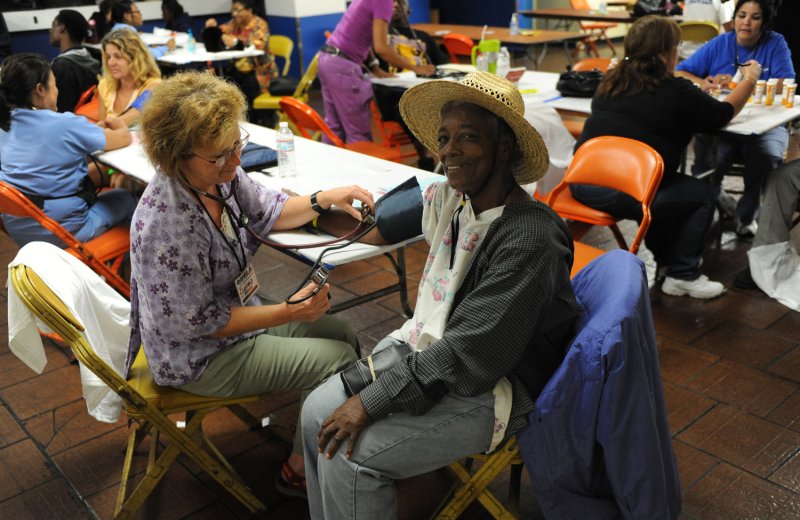Patients have their blood pressure taken, at a large health care clinic set up by Remote Area Medical at the Forum in Inglewood, Calif. UPI/Jim Ruymen. |
License Photo
AKERSHUS, Norway, May 27 (UPI) -- High blood pressure is age-related and increases the risk of heart failure, stroke and kidney disease but doctors can't fully explain the cause of 90 percent of cases.
First author Klas Pettersen of the Norwegian University of Life Sciences and colleagues used a computer model of a "virtual human" which suggests stiff arteries alone are enough to cause high blood pressure.
"Our results suggest that arterial stiffness represents a major therapeutic target. This is contrary to existing models, which typically explain high blood pressure in terms of defective kidney function," Pettersen said in a statement.
The researchers used existing experimental data and models of the aging human aorta and showed quantitatively how the stiffening of the aorta with age caused the baroreceptors -- a special group of cells in the aortic wall, which sense the pressure in this stretch of the aortic wall and send signals to the nervous system -- misinform the central nervous system about blood pressure. This prevents the system from downregulating blood pressure.
"With the stiffening of the wall that follows aging, these sensors become less able to send signals that reflect the actual blood pressure," Pettersen said.
"Our mathematical model predicts the quantitative effects of this process on blood pressure."
The model predictions were compared with data from the Nord-Trondelag Health Study, involving 74,000 people, including a blood sample collection from 65,000 people.
"If our hypothesis is proven right, arterial stiffness and baroreceptor signaling will become hotspot targets for the treatment of high blood pressure and the development of new medicines and medical devices," said senior investigator Stig W. Omholt of the Norwegian University of Science and Technology.
The study was published in PLOS Computational Biology.















